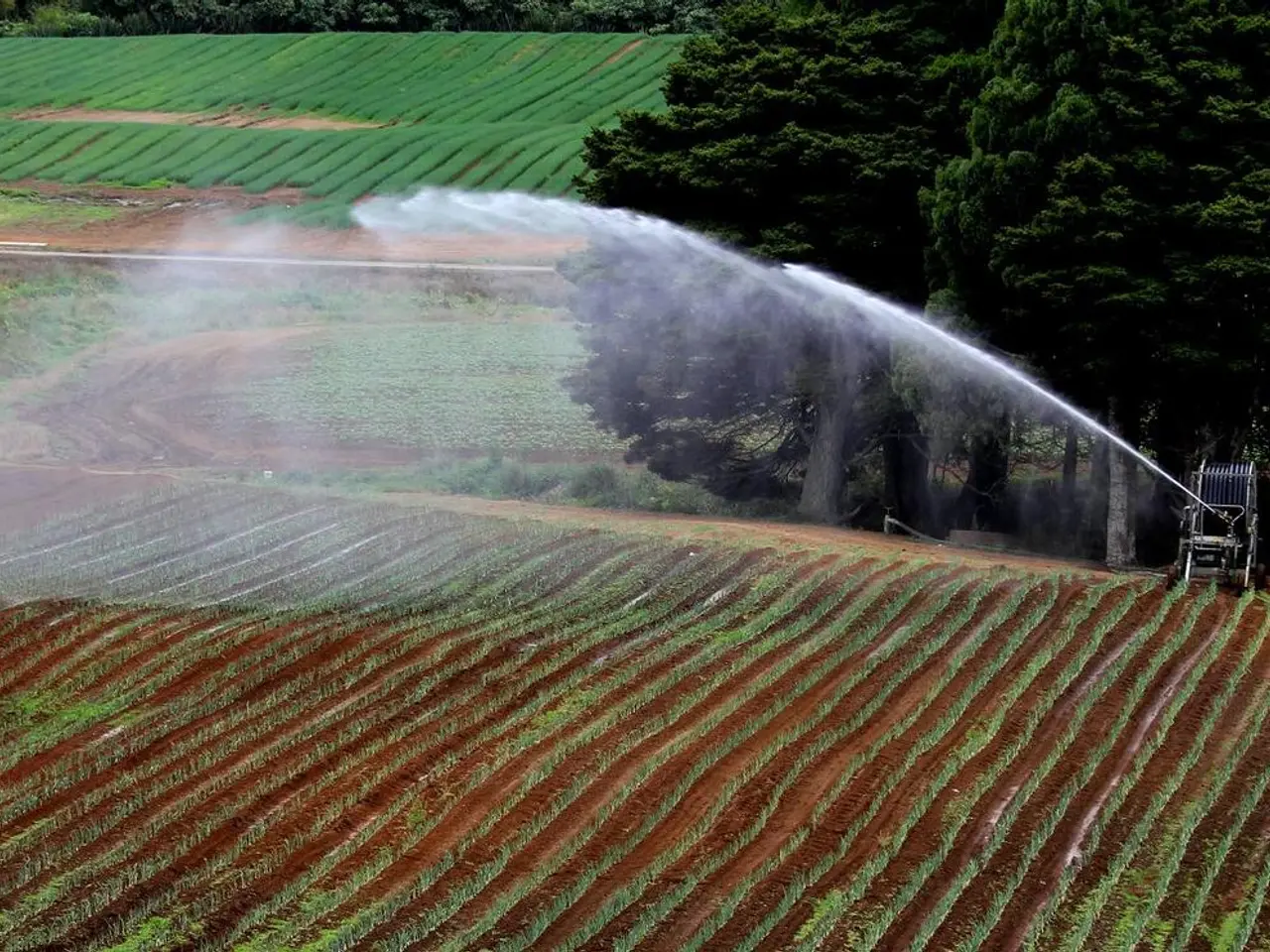Urgent land reforms crucial for India's competitive edge, asserts Confederation of Indian Industry
The Confederation of Indian Industries (CII) has advocated for comprehensive land reforms to bolster the manufacturing sector in India, with the aim of transforming the country into a global manufacturing hub. These reforms are critical to address foundational hurdles in land access, cost, and regulatory complexity, which have hindered industrial growth despite progress in other areas.
The CII's recommendations encompass a wide range of measures designed to streamline and simplify land-related processes for businesses. One such measure is the formation of a GST-like Council for land reforms, aimed at ensuring coordinated and consensus-based decisions between the Centre and states. This council will help address the current multiplicity of authorities involved in land-related processes, thereby simplifying them for businesses.
Another key recommendation is the establishment of Integrated Land Authorities in each state. These centralized agencies will handle land allotment, conversion, dispute resolution, and zoning, aiming to streamline and simplify land-related processes. To enhance transparency, the CII suggests publishing information on the number, nature, and resolution timelines of land disputes to enable informed decision-making.
The CII also proposes rationalizing stamp duty to a uniform range of 3 to 5% across states, making transactions more affordable. To overcome inefficiencies in property registration, the CII advocates full digitization of the conversion process with digitally signed certificates and QR code-enabled third-party verification.
In addition, the CII has proposed the development of the India Industrial Land Bank (IILB) from a mere information tool into a true national land bank. This integrated land bank will digitally facilitate land allotment across states, increasing transparency and simplifying acquisition for investors.
The CII also emphasizes the need for a conclusive titling system that ensures clear, legally recognized ownership of land, minimizing ownership disputes and enhancing investor confidence. The organization also suggests adopting dynamic zoning plans with a "negative list" approach, permitting all uses except those explicitly restricted.
The CII further recommends the development of cross-border industrial corridors supported by infrastructure like transport, power, water, and digital connectivity, and streamlining land banks to integrate rural and underdeveloped areas. To promote environmental sustainability, the CII suggests identifying degraded forests in the vicinity of industrial corridors for repurposing and afforestation in other regions.
The ultimate goal of these land reforms is to capitalize on emerging opportunities and march towards the goal of Viksit Bharat by 2047. As the global landscape undergoes seminal transformations, and trade and investment patterns are being reshaped by factors beyond cost, India aims to position itself as a trusted global manufacturing partner. The secondary sector, which includes manufacturing, electricity, gas, water supply, and other utility services, already accounts for over 25% of India's GDP, with manufacturing alone accounting for around 17%. These reforms are part of a broader competitiveness agenda needed for India to achieve this vision.
The Confederation of Indian Industries (CII) advocates comprehensive land reforms to benefit the manufacturing sector and transform India into a global manufacturing hub, addressing hurdles like land access, cost, and regulatory complexity. One recommendation is a GST-like Council for land reforms, to streamline processes and ensure coordinated decisions between the Centre and states. Integrated Land Authorities are proposed in each state to handle land allotment, dispute resolution, and zoning. Stamp duty is proposed to be rationalized to a uniform rate across states, and the property registration process should be digitized for efficiency. The CII also proposes developing the India Industrial Land Bank to facilitate digital land allotment, adopting a conclusive titling system, and using dynamic zoning plans to minimize disputes. Cross-border industrial corridors with supporting infrastructure and land banks are recommended to integrate rural and underdeveloped areas. This ambitious agenda, aimed at capitalizing on opportunities and marching towards Viksit Bharat by 2047, targets India as a trusted global manufacturing partner, with the secondary sector contributing significantly to the country's GDP.




